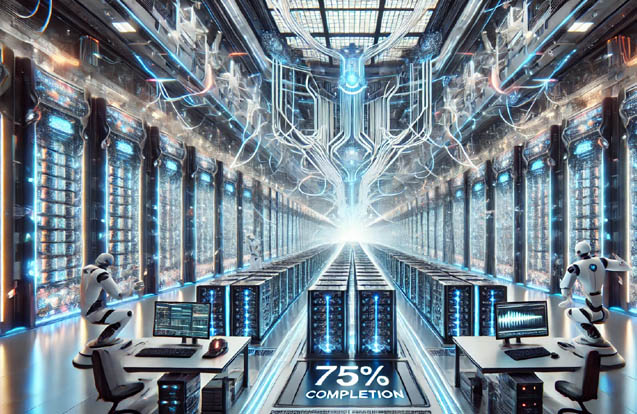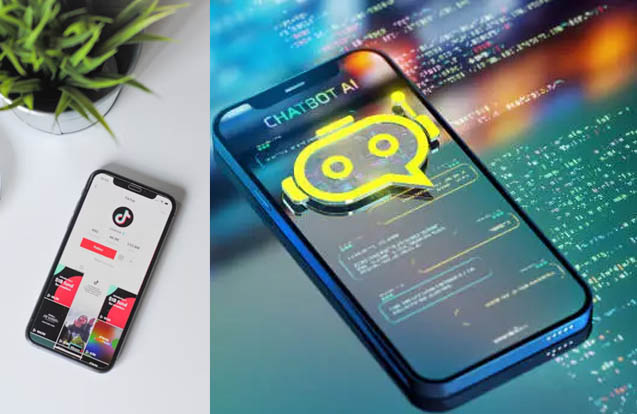
Understanding Generative AI: OpenAI's and Google's Latest Tools Explained
12-Dec-2024December’s tech stage is set with a dazzling rivalry: OpenAI and Google are racing to define the future of AI with groundbreaking product releases. The innovation marathon, nicknamed '12 Days of Shipmas,' is proving to be as thrilling as it is unpredictable.
OpenAI’s “12 Days of Shipmas”: A Blizzard of New Tools
OpenAI, the company behind ChatGPT, recently rolled out a series of innovative tools under the festive banner of the “12 Days of Shipmas.” Among the highlights:
- Sora – A video-generation tool that allows users to create videos from scratch using simple prompts. For example, imagine typing, “Create a 30-second video of a cat chasing a laser pointer,” and Sora delivers a realistic animation.
- Canvas – A versatile platform designed for writing and coding. This tool combines AI assistance with an intuitive interface, helping users draft articles or debug code with ease.
While these tools are exciting, they’re not without challenges. Sora, for instance, struggled to portray complex movements like walking animals, and glitches occasionally caused objects to vanish from videos. Despite these hiccups, the potential for creative and professional applications is immense.
Google’s Gemini 2.0 and Agentic AI: A New Era of Actionable Tools
Not to be outdone, Google unveiled its generative AI model Gemini 2.0 on December 11th, along with two cutting-edge products:
- Astra – This tool can analyze images captured through a phone’s camera and provide multilingual explanations. For instance, if you take a photo of the Eiffel Tower, Astra could provide its history, architecture details, and even travel tips. However, it’s still learning; during a demo, Astra struggled to identify where famous paintings were displayed.
- Mariner – A browser-based assistant capable of completing online tasks like adding items to a shopping cart. While promising, it’s currently limited—it can’t yet finalize purchases.
These tools exemplify what experts call agentic AI, systems that move from merely answering questions to taking actions. For example, in the future, an AI agent could plan your vacation itinerary, book flights, and reserve hotels seamlessly.
Challenges in Building Generative AI Products
While the potential of generative AI is immense, several hurdles remain:
- Data Requirements: Unlike chatbots that pull information from the web, agentic AI needs detailed data about specific tasks. For example, booking a table at a restaurant involves understanding preferences, availability, and budget. Gathering and training AI on such detailed data is a challenge.
- Trust Issues: Users may hesitate to share personal data, like purchase histories, required for these tools to operate effectively. Additionally, verifying whether an AI agent has made the “best” choice is often subjective.
- Cost: Advanced AI tools demand substantial computing power and resources. OpenAI’s new “pro” version of ChatGPT, offering premium features, costs $200 per month—ten times the basic subscription fee. This raises questions about accessibility for everyday users.
Why This Matters for You
The rise of tools like Sora, Astra, and Mariner marks a shift from AI as a passive helper to an active participant in daily life. Imagine a future where:
- Creativity: Artists and hobbyists use video-generation tools to create stunning visuals without needing advanced skills.
- Productivity: Professionals rely on AI-powered coding assistants to debug software in minutes.
- Convenience: Shoppers use AI agents to handle mundane tasks like filling grocery carts or planning vacations.
However, the journey to fully functional, reliable AI agents is just beginning. Developers are racing to address glitches, ensure data privacy, and make these tools affordable.
Final Thoughts: A Glimpse into the Future
Generative AI is evolving at lightning speed, transforming how we interact with technology. While challenges remain, the innovations from OpenAI and Google are paving the way for more intuitive, action-oriented tools that could redefine convenience and creativity. As these technologies improve, they hold the promise of making advanced AI accessible and useful for everyone—not just tech enthusiasts.
Stay tuned as the world of generative AI continues to unfold. Whether you’re a creator, professional, or curious user, these tools offer something for everyone—and they’re only getting started!
With agentic AI poised to reshape how we interact with technology, the real winners will be those who can balance innovation with reliability. The race is on, and 2025 may well crown the champions of this transformative era.
#AIInnovation #AgenticAI #OpenAI #GoogleGemini #TechRace2025 #Sora #AstraAI #GenerativeAI #SiliconValley
Thank you for reading: Globalpostheadline.com





